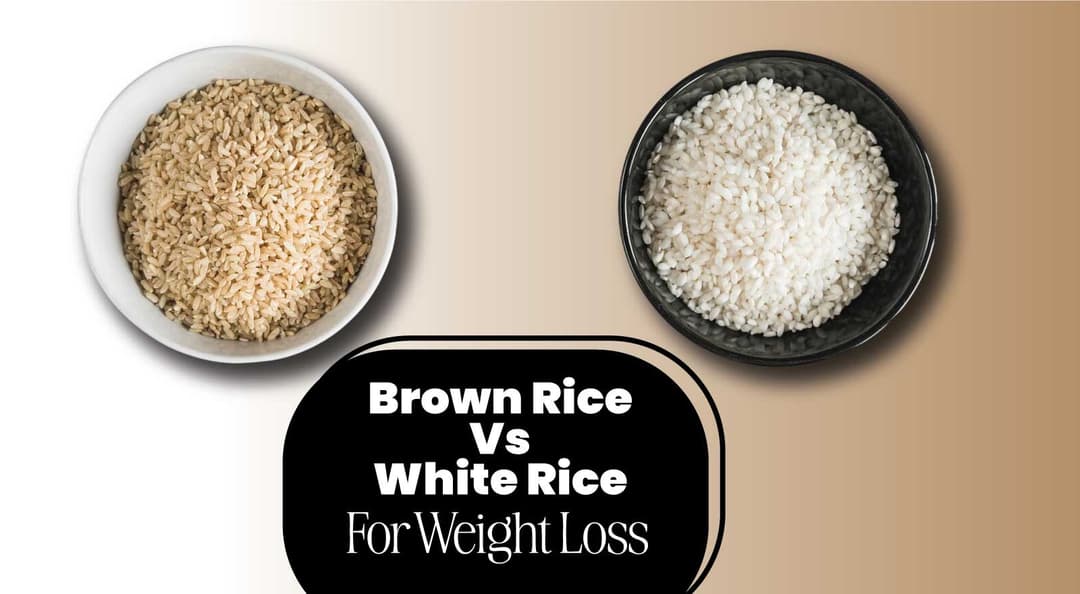As winter sets in, do you find yourself sipping less water, neglecting your skin's hydration, or needing help with dry indoor air? These winter and dehydration relations, with subtle yet critical signs of dehydration, are often overlooked when the thirst sensation diminishes. Despite feeling less thirsty, your body loses water through breathing, dry skin, and exposure to heated indoor spaces. Winter dehydration causes dry skin, fatigue, and even impaired cognitive function, emphasising the need for mindful hydration practices.
But why does this happen, and what can we do to hydrate in cold weather? This blog explores eleven practical tips to stay hydrated in winter, alongside seven compelling reasons why hydration is a must in cold weather. With these insights, you can tackle the challenges of dehydration in winter. So, let’s begin!
Table Of Contents
1. How To Deal With Dehydration In Winter? 11 Tips
2. Do You Need To Hydrate More In Winter? 7 Reasons
3. Why Do We Drink Less Water In Winter?
4. Why Am I So Dehydrated With My Cold? 4 Causes
5. The Final Say
6. FAQs
7. References
How To Deal With Dehydration In Winter? 11 Tips

Try to prioritise these practical tips for dealing with winter and dehydration symptoms altogether:
1. Sip Warm Drinks & Fluids
In winter, staying hydrated is overlooked as the thirst sensation diminishes in colder weather. However, sipping on warm herbal teas, warm water infused with lemon, or decaffeinated coffee can counteract dehydration caused by dry winter air and indoor heating. These beverages are soothing, promote better circulation, and retain body warmth while replenishing fluids. Keep a thermos with your favourite warm drink nearby to deal with winter and dehydration.
2. Include Healthy Electrolytes
Electrolytes like potassium, sodium, and magnesium help maintain fluid balance, especially in winter when dehydration risks are often underestimated. Coconut water, homemade electrolyte drinks, or oral rehydration solutions replenish lost minerals due to dry air or lower water intake. Even for fitness, opt for detox water for weight loss. Adding natural sources of electrolytes like bananas, spinach, or avocados further enhances hydration. This strategy ensures your body retains the water to fight winter and dehydration.
3. Opt For Hydrating Foods
Winter offers many seasonal fruits and vegetables that can support hydration while delivering essential nutrients. Energy-boosting foods like cucumbers, oranges, pomegranates, celery, and tomatoes are high in water, making them the best supplement for fluid intake. Including these foods in salads, smoothies, or snacks keeps your body well-nourished. As dry conditions in winter heighten dehydration, hydrating foods provide a natural way to address this challenge in balance.
Try ToneOp Care's Spirulina Powder, a blend of nutrients hailed as an "Astronaut food" for its exceptional nutritional profile. This vegan, gluten-free powder includes 46 antioxidants and over 90 essential nutrients. It offers many benefits, including improved eyesight, increased haemoglobin, stronger immunity, and enhanced energy.
4. Consider Soups And Stews
Nothing beats the combination of warmth and hydration provided by hearty soups and stews during winter. Broth-based soups made with vegetables and grains like barley or quinoa offer high water while offering nutrients. These meals are especially effective in combating the dryness of winter and dehydration. Enjoying a bowl of soup daily maintains hydration, improves digestion, and supports your immune system when dehydration is less apparent but still a concern.
5. Use An Indoor Humidifier
The dry indoor air caused by heaters and cold weather in winter significantly contributes to dehydration by reducing moisture in the air and your body. Using a humidifier restores humidity levels, preventing skin dryness, nasal discomfort, and the loss of hydration through your respiratory system. Place a humidifier in your bedroom or living space to overcome these effects. Maintaining indoor air moisture reduces the impact of winter and dehydration, keeping your skin supple and your body hydrated.
Also Read: 8 Ways To Amp Up Fitness Motivation And Tips
6. Limit Caffeine And Alcohol
Caffeinated drinks and alcoholic beverages are known to increase urine production, causing more significant fluid loss and increasing dehydration, particularly in winter. Reducing their intake is necessary, as the winter already suppresses thirst signals, making dehydration easier. Opt for hot herbal teas or warm water instead of caffeine-rich coffee or energy drinks. Similarly, replace alcoholic beverages with non-alcoholic, hydrating mocktails to protect against the effects of winter and dehydration.
Try ToneOp Care's Anti-Aging Vegan Solution, which is a comprehensive daily supplement designed to combat the signs of ageing and promote overall well-being. Enriched with essential omega-3, 6, and 9 fatty acids, this vegan formula supports eye health, regulates blood pressure, rejuvenates skin, aids in weight management, and strengthens bone density.
7. Monitor Your Urine Colour
One of the simplest tips to gauge your hydration status in winter is by observing the colour of your urine. Dark yellow or amber-coloured urine can indicate dehydration, whereas pale yellow signifies adequate hydration. In winter, dehydration is more subtle due to reduced sweat and thirst, so this method is an easy reminder to drink more water. Keeping track of your urine colour can avoid the effects of winter dehydration.
Also Read: Impactful Stretching Exercises In Yoga For Flexibility
8. Avoid Excessive Sweating
While sweating is less noticeable in winter, overexertion during physical activity or wearing too many layers causes fluid loss, increasing dehydration risk. Avoid overheating by wearing breathable, layered clothing that can be adjusted. Moderate your exercise intensity, focusing on activities that are less likely to cause excessive sweating. This ensures you conserve body fluids and address the issues of winter and dehydration without compromising warmth.
9. Focus On Skin Moisturisation
Winter weather can strip your skin cell’s of moisture, making it a visible sign of dehydration. Proper skin care, including regular moisturisers with hydrating hyaluronic acid, glycerin, or shea butter, helps lock in hydration. Applying moisturisers immediately after a shower or washing your face enhances their effectiveness by sealing them in water. This practice keeps your skin hydrated and reminds you to overcome the less obvious effects of winter and dehydration internally by drinking adequate water.
Try ToneOp Care's Skin & Hair Care Combo for 30 days to achieve radiant skin and lustrous hair. This detoxifying and nourishing combo includes a natural blend of ayurvedic ingredients, like Neem Seed Oil, Spirulina Powder, Wheatgrass Powder, Black Seed Oil, Flax Seed Oil, and Krill Oil. By trying these supplements, you can expect to experience a significant reduction in hair fall, acne, and wrinkles, as well as a noticeable improvement in hair strength, skin brightness, and vitality.
10. Engage In-Home Workouts
Cold weather often limits outdoor physical activity, but home workouts maintain your hydration balance. Activities like yoga, stretching, or light cardio promote circulation and regulate thirst, reminding you to drink fluids. Winter dehydration is easy to overlook, as reduced sweating may mask the need for hydration, but implementing short breaks to sip water during workouts ensures your body stays hydrated.
For personalized workout routines that can complement your caffeine metabolism, consider ToneOp Fit's Home Workout Plan. Choose from bodyweight exercises, HIIT workouts for a quick sweat session, or targeted strength training to build muscle and accelerate your metabolism.
11. Set Reminders To Drink Water
Winter reduces the natural urge to drink water, making it essential to set regular reminders. Use smartphone alarms, hydration apps, or visual cues like keeping a water bottle in sight to ensure consistent fluid intake. Setting specific goals, like drinking water every hour, helps counteract the hidden effects of winter and dehydration. These simple habits keep you hydrated and improve your energy and skin health during the colder months.
Also Read: Water Walking And Exercise Routines For Health
Do You Need To Hydrate More In Winter? 7 Reasons
Let’s discuss and understand these reasons for hydrating more during colder months to avoid winter dehydration:
1. Reduced Thirst Sensation
During winter, the body’s natural thirst sensation diminishes due to cooler temperatures, making it easy to underestimate fluid needs. This reduced urge to drink water often leads to mild dehydration, affecting wellness. Even if you don't feel thirsty, your body requires consistent hydration to maintain proper organ function, blood circulation, and energy balance in cold weather. Drinking more fluids prevents this thirst during the winter months.
2. Increased Risk Of Illnesses
Winter increases the risk of illnesses like colds, flu, and respiratory infections, which dehydrate the body. Fever, sneezing, and a runny nose during sickness further deplete fluids. Staying hydrated supports the immune system, helps clear toxins, and maintains mucus membrane integrity, vital for fending off infections. Adequate hydration also ensures medications and nutrients work effectively, boosting recovery and reducing common winter infections.
3. Dry Skin & Moisture Concerns
Cold weather and low humidity in winter strip the skin of its natural moisture, making it dry, flaky, and prone to irritation. Hydration maintains skin health, provides benefits such as cold showers, and replenishes moisture from within. Drinking enough water supports skin elasticity and reduces the fine lines caused by dryness. Coupled with external moisturisers, staying hydrated ensures your skin remains resilient against harsh winter conditions.
4. Excessive Dry Indoor Air
Heaters and indoor heating systems, which are standard in winter, create arid air, increasing water loss through the skin and respiratory system. This dry environment causes dehydration even without noticeable sweating. Drinking fluids regularly counteracts the drying of indoor air. Using a humidifier along with hydration helps protect against dry throat, cracked lips, and respiratory discomfort caused by dry air.
5. Impaired Cognitive Function
Dehydration in winter can significantly impact cognitive performance, as even mild fluid loss affects concentration, memory, and decision-making abilities. The cold weather often masks the signs of dehydration, making it harder to identify the cause of mental fog or fatigue. Ensuring adequate water intake can enhance brain function, improve focus, and sustain energy, preventing cognitive decline from winter dehydration.
6. Your Body Uses More Water To Breathe
Breathing in cold air during winter causes increased water loss as the body humidifies and warms the inhaled air before it reaches the lungs. This process requires more fluids, even though it’s not immediately apparent. The moisture lost through respiration can quickly add up, particularly during physical activities or exposure to extreme cold. Staying hydrated compensates for this hidden fluid loss, ensuring your body functions efficiently throughout the winter.
7. Improper Temperature Regulation
Dehydration hampers your body’s capacity to generate and retain heat, leaving you feeling colder than usual. Proper hydration supports circulation and helps maintain stable body temperatures, reducing the risk of cold-related health issues like frostbite or hypothermia. Drinking water consistently in winter keeps your body’s thermoregulation system functioning effectively, ensuring comfort and safety.
Try ToneOp Fit's 1 Year Transformation Plan which offers a holistic approach to wellness. Combining a Sattvic diet, natural therapies, and mind-body wellness techniques, the program addresses internal and external factors contributing to hair fall. Also, stress-busting and ancient yogic practices will help awaken your body's natural detoxification and weight management systems. The program also includes herbal massages to promote circulation, reduce inflammation, and enhance relaxation.
Also Read: 6 Exercises for Seniors at Home for Fitness | ToneOp Fit
Why Do We Drink Less Water In Winter?
The cooler winter months often lead to decreased water intake. This is primarily due to different factors. Let’s have a look at them:
- Firstly, lower temperatures reduce our body's core temperature, suppressing the thirst mechanism and making us feel less thirsty.
- Secondly, colder weather reduces sweating, a key indicator of dehydration during warmer months.
- Also, in winter, the preference for warm beverages like tea, coffee, or hot chocolate can sometimes mask the need for plain water.
- While providing warmth, indoor heating can also contribute to dehydration by drying out the air, causing increased fluid loss through respiration.
- Moreover, reduced physical activity in winter can further decrease the perceived need for water as we sweat less.
Remember that staying hydrated is essential year-round, even during winter. You can ensure hydration and wellness during the colder months by consciously drinking water regularly, including hydrating foods and following your body's signals.
Try ToneOp Care's Isab Go+ Sachets to manage diarrhoea. These sachets contain Ispaghula Husk with Lactitol Monohydrate, gently relieving constipation and promoting healthy digestion. With their safe, easy-to-use format, Isab Go+ Sachets can help you achieve a healthier gut. Try them for a comfortable digestive experience.
Also Read: Home Workout Vs Gym Workout: Which Is Better
Why Am I So Dehydrated With My Cold? 4 Causes
Consider these causes of dehydration during cold and flu infections with possible solutions:
Cause | Impact | Solution |
Fluid Loss | When you have a cold, your body produces more mucus to help clear out the infection that drains down your throat, causing you to lose fluids. Also, a stuffy nose can make breathing difficult, causing a dry mouth. | Drinking fluids is essential to staying hydrated and reducing fluid loss. Water is always a good choice, but you can also try sipping warm liquids. |
Fever | A fever is your body's way of fighting off infection. However, sweating causes increased fluid loss. When your body temperature rises, it needs to work harder to cool down; sweating is one way to do this. | Drink fluids to stay hydrated during a fever. Water is always a good choice, but try sports drinks to replace electrolytes after sweating. |
Reduced Appetite | You may not feel like eating as much as usual when you have a cold. This can cause dehydration, as food is a source of fluids. | If you're not feeling hungry, focus on drinking fluids. You can eat small, frequent meals or snacks. Choose easy-to-digest foods, like soup or fruit. |
Medication Side Effects | Some cold medications can have dehydrating side effects, such as dry mouth and increased urination. | If you're taking any medications for your cold, read the label properly and talk to your doctor about any side effects. And get medications that are less likely to cause dehydration. |
The Final Say
Ultimately, dealing with winter and dehydration requires implementing these simple tips to overcome the drying effects of cold weather effectively. Remember, staying hydrated is a conscious choice to nourish your body from within. However, be mindful of excessive fluid intake, especially for specific medical conditions. Consult a specialist if you have concerns or experience severe dehydration symptoms. So, this winter, let's prioritise hydration and embrace healthiness while taking necessary precautions.
FAQs
1. What are winter dehydration symptoms?
Winter dehydration symptoms often mimic cold or flu symptoms, making them easy to overlook. These include dry mouth, fatigue, dizziness, headaches, muscle cramps, and reduced urine output. Dry skin, chapped lips, and increased infection susceptibility are common signs.
2. What are the risks of not treating winter dehydration?
Ignoring winter dehydration can have serious health consequences. Prolonged dehydration heightens respiratory illnesses, impairs cognitive function, and weakens the immune system. In severe cases, it causes kidney stones, kidney failure, and even heatstroke, particularly in older adults and people with underlying conditions.
3. How to prevent winter dehydration?
Staying hydrated is essential to prevent winter dehydration, even if you don't feel thirsty. Drink water and consider warm beverages like herbal tea or broth. Include hydrating fruits (watermelon, berries, oranges) and vegetables (cucumber, celery, spinach). A humidifier adds moisture to the room air, especially in heated indoor spaces. Limit caffeine and alcohol, as they can cause dehydration.
References
- https://www.massgeneral.org/news/article/the-importance-of-winter-hydration#:~:text=Tips%20for%20Staying%20Hydrated%20in,of%20fruit%20to%20plain%20water.
- https://www.heart.org/en/news/2019/12/19/are-you-drinking-enough-water-during-winter-months
- https://blog.ohiohealth.com/drink-more-water-winter/
- https://nafc.org/bhealth-blog/how-to-stay-hydrated-during-the-winter-months/
- https://indianapublicmedia.org/amomentofscience/dehydrated-sick.php
About ToneOp Fit
ToneOp Fit is a platform dedicated to improving and maintaining good health through a comprehensive range of goal-oriented health plans with up to 3 Coach support. With a range of Weight Management, Medical Condition, Detox Plans, and Face Yoga Plans, the app also provides premium health trackers, recipes and health content. Get customised diet, fitness, naturopathy & yoga plans and transform yourself with ToneOp.








































